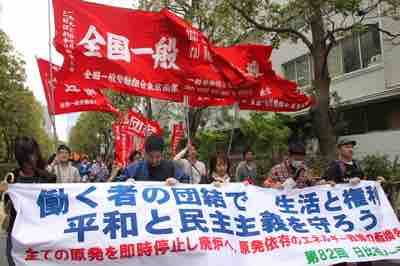Industrial sociology examines the effects of labor markets, work organization, employment relations, managerial approaches, and other factors of inequality in society, and "the ways in which workers challenge, resist, and make their own contributions to the patterning of work and shaping of work institutions" (Watson, 2008).
One branch of industrial sociology is labor process theory (LPT). In 1974, Harry Braverman wrote Labor and Monopoly Capital: The Degradation of Work in the Twentieth Century, which provided a critical analysis of scientific management. This book analyzed capitalist productive relations from a Marxist perspective. Following Marx, Braverman argued that work within capitalist organizations was exploitative and alienating, and therefore workers had to be coerced into servitude. For Braverman, the pursuit of capitalist interests over time ultimately leads to the deskilling and routinization of the worker.
Braverman demonstrated several mechanisms of control in both the factory blue collar and clerical white collar labor force. His key contribution is his "deskilling" thesis. Braverman argued that capitalist owners and managers were incessantly driven to deskill the labor force to lower production costs and ensure higher productivity. Deskilled labor is cheap and above all easy to control due to the workers lack of direct engagement in the production process. In turn, work becomes intellectually or emotionally unfulfilling. The lack of capitalist reliance on human skill reduces the need of employers to reward workers in anything but a minimal economic way.
Unions
A labor or trade union is an organization of workers that have banded together to achieve common goals such as higher pay, increasing the number employees an employer hires, and better working conditions. Originating in Europe, trade unions became popular in many countries during the Industrial Revolution, when the lack of skill necessary to perform most jobs shifted employment bargaining power almost completely to the employers' side, causing many workers to be mistreated and underpaid. Trade union organizations may be composed of individual workers, professionals, past workers, students, apprentices and/or the unemployed .

Trade Union in Japan
The Nambu University Teachers Union members picket on May Day 2011.
Industrial unionism is a labor union organizing method through which all workers in the same industry are organized into the same union—regardless of skill or trade—thus giving workers in one industry, or in all industries, more leverage in bargaining and in strike situations. Advocates of industrial unionism value its contributions to building unity and solidarity, suggesting the slogans, "an injury to one is an injury to all" and "the longer the picket line, the shorter the strike. "
In contrast, craft unionism organizes workers along lines of their specific trades (i.e., workers using the same kind of tools, or doing the same kind of work with approximately the same level of skill), even if this leads to multiple union locals with different contracts in the same workplace.
In addition to advocating for worker rights, unions may also engage in broader political or social struggle. Social unionism encompasses many unions that use their organizational strength to advocate for social policies and legislation favorable to their members or to workers in general. In some countries, unions are closely aligned with political parties.